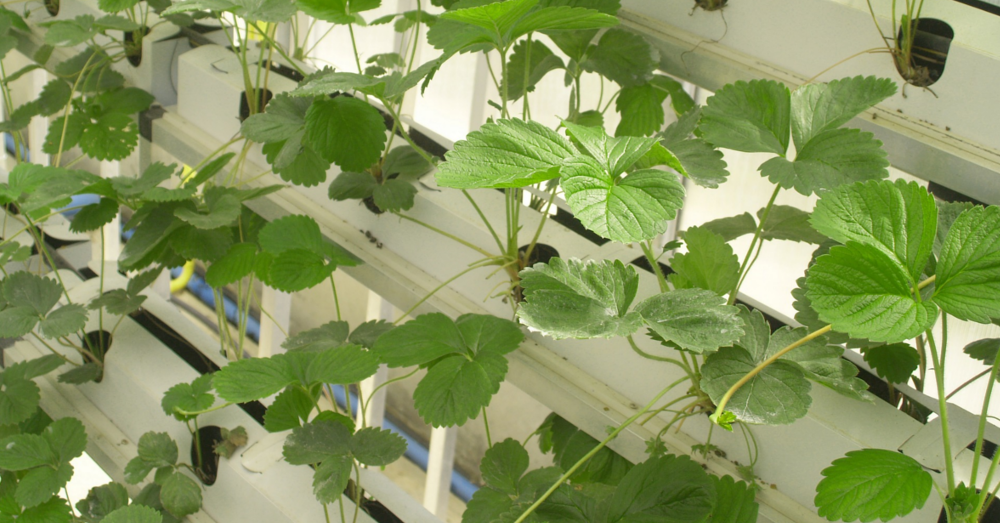
Will Inclusion of Hydroponics Be the Death Knell of Organic Standards?
According to section 7 CFR 205.205 of the U.S. Department of Agriculture’s (USDA) organic regulations, an organic grower’s crop rotation plan must maintain or improve soil organic matter. November 1, the National Organic Standards Board rejected the proposal to ban hydroponics and aquaponics in organic production, even though these growing methods do not involve soil. Many organic pioneers are now threatening to opt out of USDA organic certification. If stewardship of nutrient-rich soil is eliminated as a basic requirement of organics, an alternative add-on label may be developed/
November 14, 2017 | Source: Mercola.com | by Dr. Joseph Mercola
Before we discuss the recent tragic news about the organic certification standards, it is important to understand that most hydroponically grown food is vastly inferior to food grown in a healthy soil, where the fungi and microbes can optimize the plant in a way that is simply impossible to do in a hydroponic environment.
You see, the basis of organic food production starts with improving the soil. This has been understood for over a century, when you improve the soil you improve your health and protect the environment from the damages of factory farming.
A couple of months ago I discussed the fight to prevent hydroponically grown produce from being included in organic standards. According to section 7 CFR 205.2051,2 of the U.S. Department of Agriculture’s (USDA) organic regulations, an organic grower’s crop rotation plan must maintain or improve soil organic matter. Since hydroponics does not involve the use of soil, it stands to reason that it cannot qualify for organic certification.
Despite such seemingly clear-cut rules, a large number of hydroponic operators have still been able to obtain organic certification by USDA accredited certification agencies,3,4,5 and the hydroponics industry has been fighting for organic certification to be open to the industry at large. As noted by Cornucopia Institute, organic hydroponic production was “quietly approved” by Miles McEvoy, former deputy administrator of the USDA’s National Organic Program (NOP).6
McEvoy resigned from his post September 10, having held the position for the past eight years. In 2010, the National Organic Standards Board (NOSB) had voted “no” on allowing hydroponics as the organic rules clearly did not support their inclusion. McEvoy, who disagreed with the panel’s decision, allowed hydroponic growers to apply for certification anyway. On November 1, the NOSB voted on whether these hydroponic growers would be allowed to remain part of the organic program or not.
Standards Board Accepts Hydroponics Into Organics
Many passionate growers and organic consumers have voiced their opinions on the matter. A petition created by Keep the Soil in Organic gathered 86,000 signatures, which were delivered to the NOSB in anticipation of its vote. Unfortunately, the NOSB, which acts as an advisory panel to the USDA on matters relating to organic standards, voted 8-to-7 to reject the proposal to ban hydroponics in organic production.7,8,9
To say it’s a major blow to the organic industry would be one of the most serious health understatements of the year. Many organic pioneers are now threatening to opt out of USDA organic certification altogether, and/or to “develop an alternative add-on label if the stewardship of nutrient-rich soil is eliminated as a foundational requirement,” Mark Kastel, cofounder and codirector of the Cornucopia Institute said in a recent post.10
Following the NOSB vote, organic tomato farmer Dave Chapman, who has lobbied to get hydroponics out of the organic program, told The Washington Post,11 “This was the Hail Mary pass to save the NOP, and they didn’t catch it. They did incalculable damage to the [USDA organic] seal tonight. It’s just going to take them a while to realize it.”
Labeling Hydroponic Products as Organic Is Illegal
Jim Riddle, steering committee chair of the Organic Farmers Association (OFA),12 who in the early ’90s co-wrote OTA’s organic standards, had this to say about hydroponics being allowed to be certified organic:
“The labeling of hydroponic products as ‘organic’ is illegal. The Organic Foods Production Act (OFPA), in section 6513(b)(1), states, ‘An organic plan shall contain provisions to foster soil fertility…’ Further, OFPA 6513(g) states, ‘An organic plan shall not include any production or handling practices that are inconsistent with this chapter.’ Soilless production systems are inconsistent with OFPA.
They do not comply with numerous sections of the NOP Final Rule, as enumerated in the Crops Subcommittee’s recommendation. There is one relevant rule provision that the Committee overlooked. Section 205.601(j)(6) allows the use of micronutrients, with the following annotation, ‘Soil deficiency must be documented by testing.’
This does not mean that micronutrients may be used if soil is deficient from the system. No, it links soil to the allowance for the use of micronutrients. The OFPA and rule sections mentioned above, and in the Committee’s recommendation, use the words ‘shall’ and ‘must,’ not ‘should’ or ‘may.’ These are mandatory provisions, and they cannot be ignored.
In addition, soilless, hydroponic systems do not comply with the NOSB Principles of Organic Production and Handling, the first sentence of which reads, ‘Organic agriculture is an ecological production management system that promotes and enhances biodiversity, biological cycles, and soil biological activity.’
